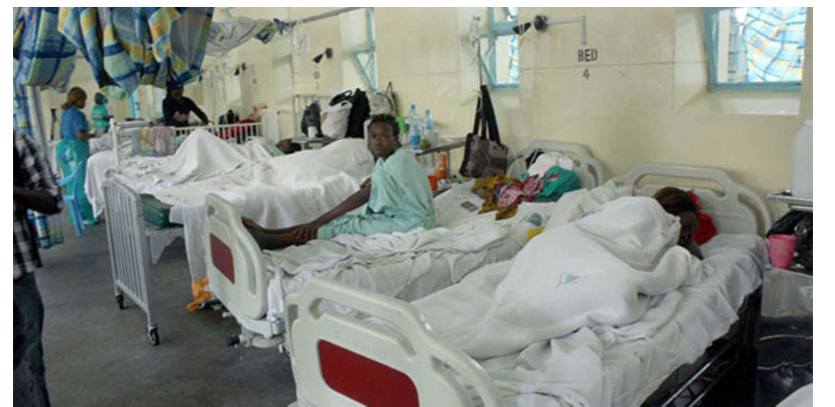Revolutionising healthcare in Africa through tech
By PD columnist, April 20, 2023For a long time, Africa’s healthcare systems have faced significant challenges. According to a 2019 study published in the International Journal of General Medicine, inadequate human resources, insufficient budgetary allocation to health, and inefficient management are some of the major challenges facing healthcare service provision on the continent.
Last-mile access, disruptions in medical equipment and drug supply chains, and even information storage, sharing, and access are the other challenges that countries face. This is despite the fact that the disease burden of both infectious and chronic illnesses is significantly increasing. Africa bears 25per cent of the world’s disease burden, according to the World Health Organisation. It is especially concerning given that the Africa Development Bank (AfDB) predicts the continent’s population will reach 2.4 billion by 2050, putting an increasing strain on existing healthcare systems as the continent’s population grows.
Technology has the potential to transform healthcare delivery due to its ability to disrupt industries for the better. Real-world solutions are already being implemented across the continent to improve the quality and accessibility of healthcare services by leveraging existing technology platforms. The areas in which technology can have an impact are nearly limitless. Health informatics, remote patient monitoring, AI diagnostic tools, cloud storage, big data analysis, telemedicine, medical robots, and a plethora of other important subjects are all on the table for investigation in the health tech space.
To begin with a low-tech example, consider the power of Electronic Health Records (EHR) systems. Accessing patient histories, previous complaints, treatment regimens, and even comments from previous doctors is quick and easy by simply putting all patient records in a repository and connecting all of a hospital’s computers to it. When connected to the cloud, EHR systems can now provide physicians with access to information regardless of location.
Sharing information is critical not only for individual patients, but also for healthcare systems to monitor disease trajectories and, as a result, plan prevention and control measures for large segments of the population. When combined with big data capabilities, the information can be used to forecast outbreaks and assist countries, continents, and even the entire world in planning effective responses.
The Covid-19 pandemic is an excellent example of the power that data sharing can have when properly implemented. Countries used the information available to them to inform their response policy, doctors used it to make treatment decisions, and pharmaceutical companies used it to design vaccines. The data had discrete applications, but when combined, it was critical to flattening the Covid curve. We are already seeing effective implementation of innovative solutions to some of the continent’s most pressing healthcare challenges. In Kenya, for example, the use of telemedicine is rapidly expanding to assist physicians in reaching patients who are unable to travel or live far from health care facilities.
In Rwanda, where 83per cent of the population lives in rural areas, a start-up is using autonomous drones to deliver blood to rural hospitals and health centres, cutting delivery times from two hours to 41 minutes on average.
There are numerous opportunities for tech developers to positively impact millions of people on the African continent and beyond. All it takes is the desire to imagine a better world, the determination to join those working to make it better, and the willingness to learn how.
— The writer is the Regional Head of Student & Community Engagements at Microsoft Africa Development Centre.
More Articles

